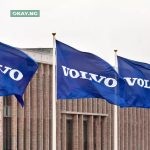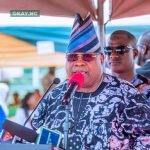President Bola Tinubu has given the green light for the immediate upgrade of 16 key health infrastructure and equipment across all six geo-political zones in Nigeria. This significant decision aligns with the administration’s commitment to revamping the health and social welfare sector for the benefit of all Nigerians.
According to a statement by the President’s media aide, Ajuri Ngelale, the upgrade initiative is part of President Tinubu’s Health Sector Renewal Investment Initiative, which prioritizes the improvement of healthcare infrastructure and services across the country. The Federal Ministry of Health and Social Welfare, in collaboration with the Nigeria Sovereign Investment Authority (NSIA), will spearhead the comprehensive upgrade of cancer-treatment infrastructure and other critical developments in six tertiary hospitals spread across various geopolitical zones.
Among the notable upgrades planned are the establishment of oncology and nuclear medicine centers in six teaching hospitals across the country, including the University of Benin Teaching Hospital, Ahmadu Bello University Teaching Hospital, and Lagos University Teaching Hospital, among others. Additionally, expansion projects in fields such as radiology, clinical pathology, medical and radiation oncology, and cardiac catheterization will be implemented in ten hospitals spanning all geo-political zones.
The selected hospitals for these expansions include Reference Hospital in Kaduna, Medical Diagnostic Centre Complex in Enugu, Usman Danfodiyo University Teaching Hospital in Sokoto, University College Hospital in Ibadan, and University of Uyo Teaching Hospital, among others.
Ngelale emphasized that these critical projects, slated for completion within 12-18 months, aim to enhance screening and diagnostics for both communicable and non-communicable diseases, reduce mortality rates, and improve outcomes for patients. Moreover, they are expected to generate substantial employment opportunities across clinical, administrative, and managerial sectors in Nigeria’s six geo-political zones, while also building the capacity of clinical personnel in advanced procedures, diagnostics, and treatment modalities.












